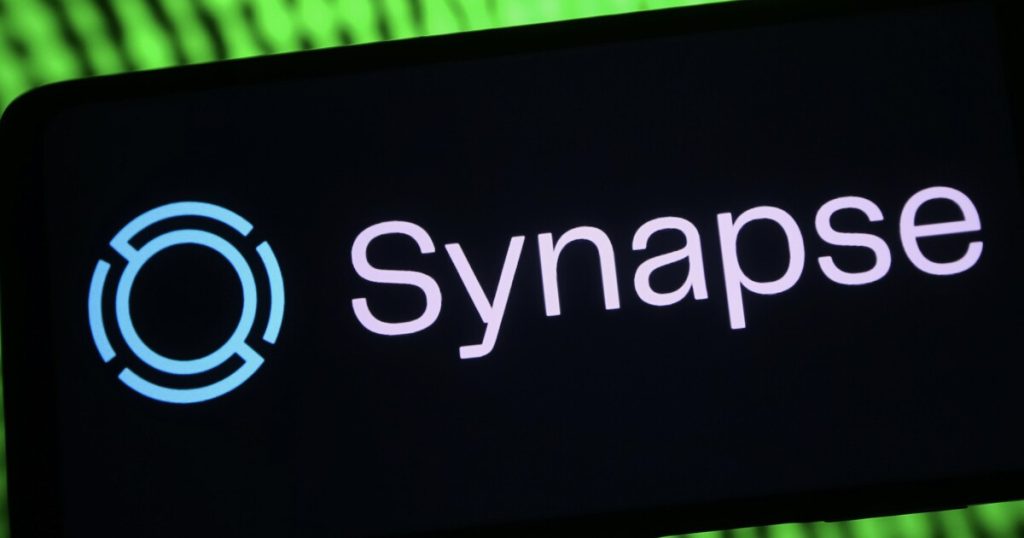The Central California bankruptcy court handling the bankruptcy of Synapse, a defunct middleware provider, has granted a motion for a claimant to examine Evolve Bank & Trust, one of Synapse’s partner banks.
The judge granted former Synapse customer fintech Fund That Flip’s motion for a so-called 2004 examination of Evolve, which allows parties to a bankruptcy case to conduct an examination of a person and/or documents, similar to a deposition. Fund That Flip provides an online platform for investing in short-term residential real estate debt; it recently changed its name to Upright. According to the company’s lawyers, Synapse’s banks hold $243,861 of its customers’ money, to which neither they nor their customers have access or know where it is being held.
The Synapse case is significant because it illustrates the perils of the banking-as-a-service business model, whereby banks offer their services as a chartered bank to fintechs, giving the bank more customers and fintechs more services. Fintechs signed up with Synapse to connect them with chartered banks. Banks and fintechs relied on Synapse’s ledger for records of customer funds going in and out of their bank accounts. Synapse’s bankruptcy trustee, former Federal Deposit Insurance Corp. Chair Jelena McWilliams, has said $65 million to $96 million of its fintechs’ end users’ money is missing.
In this long-lived and complicated case, parties have been pointing fingers at one another. In this latest development, Fund That Flip says Evolve Bank, Synapse’s first bank partner, has refused to provide requested information and documents. Synapse’s other partner banks — Lineage, AMG National Trust and American — have also accused Evolve of failing to provide records. Evolve has accused Synapse of
Evolve’s position is that when it transferred Synapse customer accounts to the three Synapse Brokerage banks (Lineage, AMG and American) in or around September 2023, as part of its professional breakup with Synapse, there was no shortfall in customer funds. Synapse has accused Mercury, a business banking fintech that migrated off Synapse in October 2023, of inappropriately taking $50 million. Mercury has said this is not true. Synapse has also said it never agreed to Evolve’s $25 million monthly services charge. Evolve says that monthly service charge was agreed to and built into its contract with Synapse. The three Synapse Brokerage banks have said they have given back all the Synapse end user funds they held. Multiple class action lawsuits have been filed against the banks involved.
Evolve Bank said it had no comment on the 2004 exam.
“We don’t know any details about the 2004 exam, but we hope it can help,” said Sheryl Bollinger, CEO of AMG National Trust. The other two Synapse partner banks did not respond to a request for comment.
The exam of Evolve Bank “could lead to answers that would clarify the situation, especially with regard to the fees charged and reserve funds Evolve created as Synapse’s situation deteriorated,” said Todd H. Baker, a professor at Columbia University and managing principal at Broadmoor Consulting.
According to Christopher Fisher, an attorney representing Fund That Flip, its customers “have been unable to access their funds and remain in the dark about the status of funds believed to be held by Synapse’s partner banks, including Evolve Bank & Trust,” he wrote in a statement submitted to the court. “Upon information and belief, those funds are currently being held by Evolve.”
He said his company has repeatedly asked Evolve for information and documents and Evolve has not provided any of the requested records.
In a separate memo, Fund That Flip attorneys said they seek to obtain information and documents relevant to Evolve’s reconciliation efforts to date, current and historical balance detail for fintechs on Synapse’s platform and communications between Evolve and Synapse related to the handling of the fintechs’ funds and their customers’ funds, “all of which are needed to properly inform impacted end users and facilitate timely resolution in this matter,” the memo stated.
